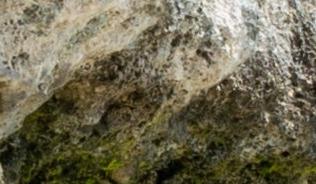The past year was one of celebration for the IES, starting with a successful AGM which launched our 40th year activities. Senior Vice President, and one of our longest-standing members, John Baines gave an engaging reminiscence of the evolution of the Institution since its founding in 1971. We were joined by Sir John Lawton, former Chair of the Royal Commission on Environmental Pollution, who provided a stimulating account of the development of the environmental sector over the past few decades, and a stirring challenge for the future.
Soon after, at an IES-sponsored event at Cheltenham Science Festival, Jonathon Porritt outlined the concept of planetary limits and how this filters down into policy. He attacked the illusion of limitlessness, the idea of the mastery of nature and the lack of evidence-based policy. It was sponsored as part of the IES' commitment to promote public engagement with environmental science.
As recruitment freezes, government cuts and Higher Education cutbacks heavily impacted the environmental sciences this year, the summer saw the Institution respond by launching a new membership service, our mentoring scheme. The mentoring scheme matches up members seeking work in the environmental sciences sector with an experienced environmental professional. Early indications are that this has been beneficial for those on the scheme, with members achieving employment as a direct result. This has been added to the package of services offered on our 'Back to Work' and 'Into Work' schemes, which are dedicated to helping unemployed members and recent graduates to find work in the sector.
In September our journal, The Environmental Scientist took on a new look. Designed to be more accessible and engaging, the inaugural edition of this new design explored issues around Environmental Education, combining case studies with feature and technical articles. It was well received with a copy even landing on the desk of the Education Minister. Many thanks to Dr Peter Shaw for guest editing this journal, Dr Jimi Irwin for his direction and organisational skills and to Julia Heaton, for her sterling work during this evolution of the Journal.
PP4SD (Professional Practice for Sustainable Development) published a concept paper entitled ‘From Boardroom to Till: Selling Sustainability’. This addressed the disconnect between corporate sustainability strategies in the boardroom and the day-to-day work of shop floor staff. It identified the need for consumer demand for greater sustainability in the food retail industry, improved engagement between retailers and their customers and the potential for this to lead to competitive advantages. PP4SD continues to be an important aspect of IES activity, and we look forward to its development in the future.
In November, the IES published a comprehensive piece of research entitled ‘Graduate Employment and Internships: issues from the environmental sciences and sustainability sectors’. In today’s difficult graduate employment market there is growing controversy surrounding internships which, often being unpaid, can be seen as exploitative. The report identified that there is little consensus amongst both graduates and employers regarding the purpose, worth and format that internships should take. The report concluded with recommendations for any employers running internships schemes. My thanks to Adam Donnan for leading on this important piece of work and our volunteers Rachel Godfrey and Robert Carthy for their contributions.
The Institute of Air Quality Management (IAQM) continues to go from strength to strength. In July the IAQM ran a sector leading event entitled 'Uncertainties in NOx/NO2 emissions: Implications for air quality & development control’. The programme consisted of four speakers, a debate on problems with predicting NO2 concentrations, and practical ways forward particularly in relation to development control. Congratulations go to Dotun Olowoporoko for winning the 2011 IAQM Ian McCrae Travel Award. Dotun is a post-doctoral fellow at the University of the West of England, currently developing an air quality management framework for Nigeria. The Ian McCrae award will help him attend the Urban Environment Pollution Conference in Amsterdam in 2012. Thanks go to Professor Bernard Fisher and Dr David Muir for their enthusiastic work at the IAQM.
As part of our close relationship with Change Agents UK (formerly Student Force) the IES' Adam Donnan hosted a ‘webinar’ in the Ignite series on sustainability and employability. Adam shared his thoughts, ideas and inspiration on developing a career in the environmental sector, including his insights from his recent research into graduate internships. This is one of many web-based events the IES hopes to run in the coming years.
The Institution added another Chartership grade this year, that of Chartered Scientist, through the Science Council. This new Chartership recognises professional commitment and excellence in science and is increasingly becoming a must-have for those in the science sector. Uptake has exceeded expectation, with over 200 members joining in the first year. My thanks go to Jennifer Blumhof for her work with the Science Council and the IES office in setting this scheme up and her continued work on the boards of both organisations. We continue to award CEnv, with the ‘CEnv in a day’ being an incredibly popular event. My thanks to all those Council members who give their time to these days, and to Professors Carolyn Roberts and Will Pope, for their efforts representing the IES on the board of the Society for the Environment.
The year also saw an impressive growth in IES membership with a 20 per cent growth in subscribing members. One driver behind this growth is that in a time of job scarcity membership of the IES provides professional recognition that aids career development.
As part of our aim to increase the impact of the IES and its membership, the Institution produced two guides for members seeking influence in UK and EU environmental decision-making. These guides explained the key features of UK and EU institutions, unpicking their legislature process and identifying key environmental contacts. Professor Carolyn Roberts attended a fringe event at the Liberal Democrat conference, as part of a debate organised by the Science Council, to put forward the case for environmental science.
As usual I must give a big thanks to our volunteers this year who have completed their time on the IES volunteer scheme; Robert Carthy, Rachel Godfrey (subsequently employed by PP4SD from July 2011 – September 2011), Charlotte Rance, Gillon Dobie, Jessica Mayall and Shayani Weeresinghe. Each one of these bright young things enriched the IES with their own ideas and in turn have gained valuable experience in the sector. I wish them luck in their future careers.
Deep thanks of course must once again go to the IES project team; Julia Heaton (Project Officer) and Adam Donnan (Senior Executive Office). Both have driven, originated and made great successes of all IES activity, whilst looking after our members with a high degree of professionalism.
Final thanks go to Dr Mark Everard who, after four years at the helm as Chair of the Institution is stepping down. Mark has helped raise the profile of the IES immeasurably and has steered the IES with a great enthusiasm I personally am very grateful for, thank you Mark.


